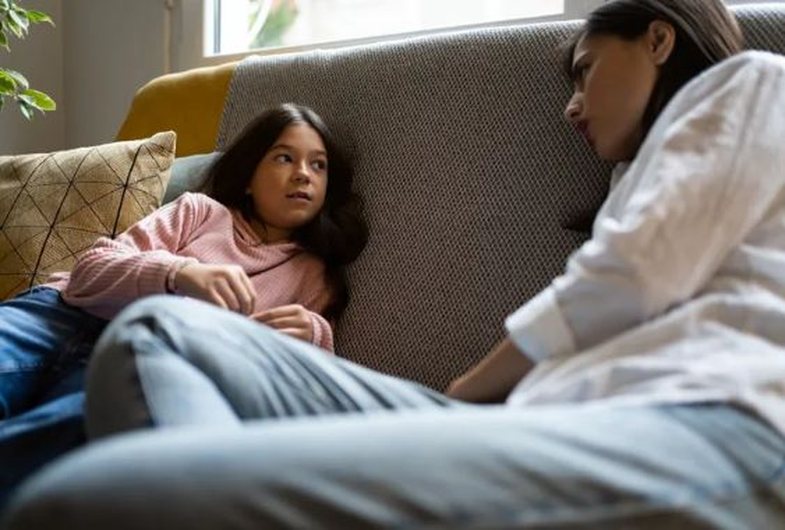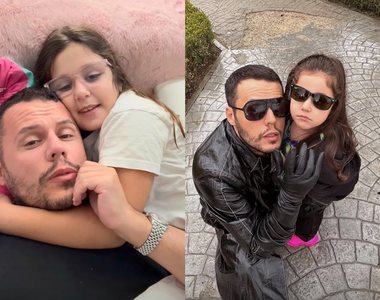
War represents one of the most difficult realities, filled with horror events that can not be described in words and traumas that accompany people to the end. The recent conflict in Ukraine made us understand more closely all that until yesterday for young people were simply events taught in the subject of History.
Beyond the pain that forgives every human story affected by war, a great concern remains children. How can you explain to children what is going on. Do not expect the traumatized child to come and open a discussion like this. Start the conversation by first learning how to answer the questions that will most likely be asked of you.
1. "Why is there war?"
A question as simple as it is complicated that often leaves adults unanswered in front of children. If your child is about 5 years old you can respond like this: "They are fighting among themselves to decide who will be the leader, but war is not a good choice. They can talk instead of fighting. "
If you are dealing with a slightly older child, you can explain it like this: "Russia will take control of Ukraine, but the latter is an independent country and it will not be Russia that decides for it. So yes "They are resisting and responding to the attacks, causing a war between them."
2. "What is happening to the people there?"
You can tell the truth, what happens in war. Tell them that people are hurting, losing their lives, but do not forget to add that children are with their families and are protected by them. Tell them that many have lost their homes while others have fled the country. Here you can explain in detail what "refugee" means.
3. "Am I in danger?"
Kur je fëmijë, bota jote është shumë e vogël prandaj është e kuptueshme që fëmijët e vegjël të shqetësohen për gjërat e këqija që dëgjojnë të ndodhin përreth. Detyra e prindërve është t'i bëjnë të ndihen të sigurtë. Tregojini se në botë "ka shpëtimtarë" që kujdesen për sigurinë e të gjithëve dhe përgatiten që luftërat të mos ndodhin.
4. "Po kjo që pashë sot në TikTok apo dëgjova në shkollë?"
Duke qenë se sot informacioni është shumë e shpejtë, ka gjasa që fëmijët të mësojnë gjëra që ju do të donit të mos i kishin parë. Eshtë bërë gati-gati e pamundur të vendosësh filtra informimi, prandaj duhet një diskutim i kujdesshëm. Pyetini me qartësi çfarë kanë dëgjuar dhe kanë parë dhe tregojini se jo gjithmonë çfarë shkruhet apo shihet është e vërtetë. Mësojini si të dallojnë një burim serioz nga një tjetër jo i tillë.
5. "Po ne a mund të ndihmojmë?"
Shpjegojini se pavarësisht se nuk është në dorën tonë ndalimi i luftës, ka gjithmonë mënyra për të ndihmuar njerëzit e prekur. Kishat e qytetit apo organizatat e ngritura pikërisht për t'i ardhur në ndihmë njerëzve të prekur nga lufta janë një mënyrë e mirë për të treguar mbështetje. Madje, bashkë me fëmijët mund të përgatisni diçka dhe t'i dërgoni në grupet përkatëse. Kjo mund të transmetojë paqe tek fëmija yt.
5. "A ke frikë?"
Fëmijët duan siguri emocionale nga prindërit e tyre. Sigurohu që të transmetosh qetësi dhe jo ankth teksa i shpjegon çfarë po ndodh rreth nesh. Eshtë e rëndësishme të mos i përcjellësh ndjesi frike.
6. "Çfarë do të ndodhë më vonë?"
They will certainly tell you what you know. That no one knows for sure what will happen in such periods. Instead of offering vain predictions that may not stand, ask what he feels and thinks about his future.
7. "I'm still worried. What should I do?"
Keep children close to you at all times, ask how they are and tell them that they can rely on you for any concerns. Give them a chance to show how they feel. Also focus on maintaining a healthy routine at home and an interesting lifestyle. Do things together, feed them properly and make sure they play and learn new things every day.
Source: Huffington Post







